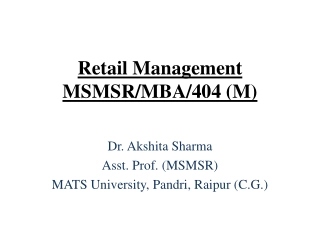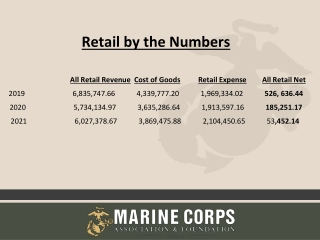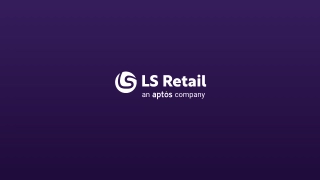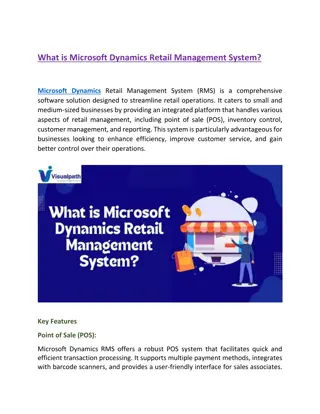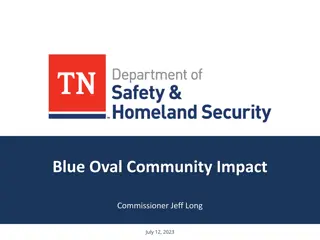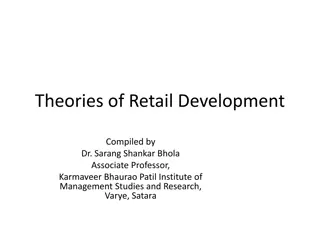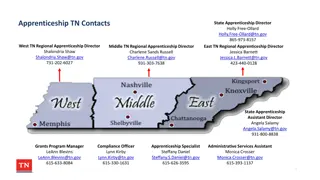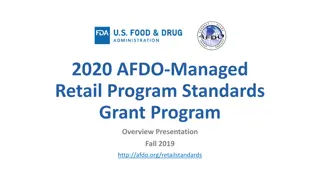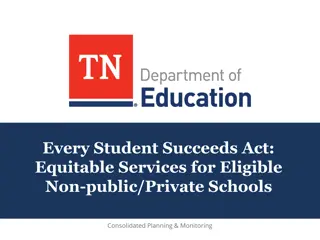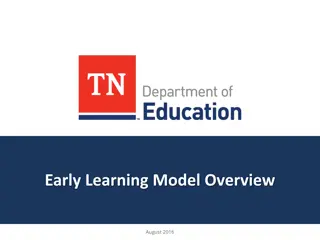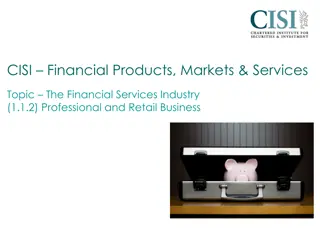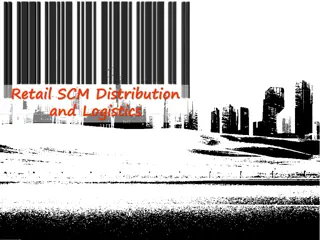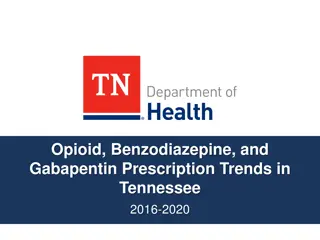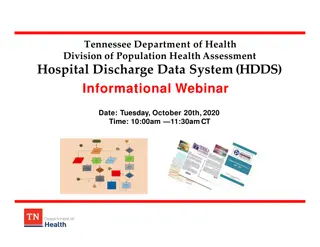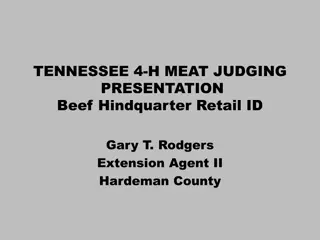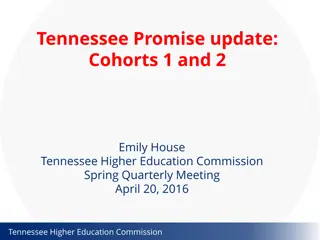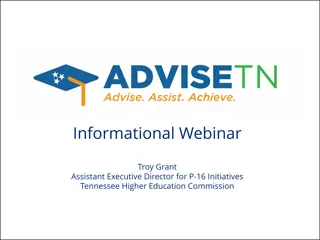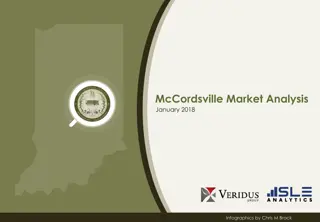Tennessee Retail Accountability Program Overview
The Tennessee Retail Accountability Program (RAP) was initiated in 2012 to ensure fair business practices by requiring wholesalers to electronically report sales information. The program aims to prevent under-reporting, creating a level playing field for compliant retailers. Wholesalers play a crucial role in maintaining accurate sales records for tax purposes. Retailers are not burdened with additional requirements under RAP as long as they file and remit sales taxes properly. The program has led to significant increases in sales tax collection and recent updates now include reporting requirements for candy, food, and non-alcoholic beverages.
Download Presentation

Please find below an Image/Link to download the presentation.
The content on the website is provided AS IS for your information and personal use only. It may not be sold, licensed, or shared on other websites without obtaining consent from the author.If you encounter any issues during the download, it is possible that the publisher has removed the file from their server.
You are allowed to download the files provided on this website for personal or commercial use, subject to the condition that they are used lawfully. All files are the property of their respective owners.
The content on the website is provided AS IS for your information and personal use only. It may not be sold, licensed, or shared on other websites without obtaining consent from the author.
E N D
Presentation Transcript
Alabama Department of Revenue Mike Gamble, Deputy Commissioner Rouen Reynolds, Director of Sales Tax Division
AGENDA Tennessee Retail Accountability Act Alabama Retail Accountability Act Department Rule Changes
TN: Retail Accountability Act The Retail Accountability Program (RAP) began when legislation was passed in 2012 that required wholesalers of beer and tobacco products to file an information report electronically with the Department. The reports allowed the review and identification of under-reporting quickly. RAP was also designed to ensure a level playing field for businesses by protecting compliant retailers from the unfair advantage gained by non-compliant retailers who have collected the sales tax from citizens and kept it.
TN: Retail Accountability Program The Role of Wholesalers Sales tax has existed in Tennessee since 1947. Since that time, wholesalers have been required to keep records of their sales to retailers and make those records available to the Department to aid in the proper administration and collection of the tax. Although the types of records wholesalers provide the Department has changed very little, how the records are provided has changed with technology. RAP allows the Department to review sales records from wholesalers in a more efficient way: electronically, instead of in paper form.
TN: Retail Accountability Program The Role of Retailers: The TN Retail Accountability Program does not add any requirements for retailers. Retailers continue to file and remit their sales tax returns to the state, as they always have. If retailers file and remit their sales taxes properly to the state, they will not be impacted by the program.
TN: Retail Accountability Program Current Updates and Data: The identification of the non-compliance has led to over $60 million in additional sales tax collections through the end of 2015. Beginning July 25, 2016 Candy, Food and Non-Alcoholic Beverages are being reported. Wholesalers making sales of $500,000 or more per year of candy, food and non-alcoholic beverage products must now report these sales to the Department. While not required, wholesalers may also include non-food sales in the report if doing so is more convenient. Information can be reported by invoice or combined into one total amount purchased by the retailer for the month or quarter being reported. .
Alabama Retail Accountability Act Requires monthly reporting by wholesalers and distributors of tobacco products and beer and wine. Each licensed beer or wine distributor shall report sales of any beer or wine made to licensees for which an exemption from sales or use tax collection was claimed at the time of the sale. Each seller of tobacco products, selling or distributing to retailers in the state shall report sales of tobacco products for which exemptions from sales or use tax were claimed at the time of the sale.
Alabama Retail Accountability Act Expands already existing reporting requirements for tobacco products, no new report will be required. Department to provide an electronic filing mechanism for submission. Data to be received: Seller s legal name and address, FEIN or SSN Seller s beverage license Retailer s name and address, FEIN or SSN Total amount sold per reporting period Applicable resale number Invoice period and invoice date
Alabama Retail Accountability Act Penalty Provisions: 1stviolation written notice from department advising of non-compliance and penalties. 2ndviolation penalty not to exceed $500. 3rd(+) violation penalty not to exceed $1000. Department shall not initiate automated assessments or audits based solely on data provided in informational reports. Wholesale and Distributor Reporting Advisory Group formed: To make recommendations regarding the reporting of the informational reports. Representatives from state and local government, industry and retail community.
2016 Department Rule Changes Sales and Use Tax
ADOR Rule Changes 810-6-5-.29: Oxygen and Durable Medical Equipment Dispensed to Medicare Recipients by Participating Providers Effective Date: April 23, 2016 Overview: Amended Amended to clarify and add guidance for sales to doctors offices that provide DME to their patients and for sales to hospitals. 810-6-2-.90.02: Simplified Sellers Use Tax Remittance Program Effective Date: April 23, 2016 Overview: Amended Provide guidance for out-of-state sellers. Provides terms, requirements of program, and distribution of proceeds.
ADOR Rule Changes 810-6-2-.90.03: Requirements for Certain Out-of-State Sellers Making Significant Sales into Alabama Effective Date: October 13, 2016 Overview: Adopted Out-of-State sellers who lack an Alabama physical present but who are making retail sales of TPP into the state have a substantial economic presence in Alabama for sales and use tax purposes and are required to register for a license with the Department and to collect and remit tax when: Seller s retail sales of TPP sold into state exceed $250,000 per year based on previous calendar year sales Seller conducts one or more of the activities described in Section 40-23-68 (Use Tax) Sellers may satisfy requirements above by one of the following: Using the collecting, reporting and remitting provisions of Section 40-23-2 (Sales Tax) Using the collecting, reporting and remitting provisions of SSUT Applies to transactions occurring on or after January 1, 2016
ADOR Rule Changes 810-6-3-.47: Poultry Products Effective Date: October 13, 2016 Overview: Adopted Baby chicks, broilers, eggs, and other poultry products are exempted when sold by the producer, members of his family, or persons employed by him to aid in the production, and when produced in a rural area on premises which include cultivated areas in connection with production. 810-6-3-.46.02: Sales to the Post Office Effective Date: October 13, 2016 Overview: Adopted Quasi-independent governmental agency and is, therefore, exempt from state taxation. Sales of items to the post office would be exempt from state sales and use taxes. Public Law No. 91-375 There is established as an independent establishment of the Executive Branch of the Government of the United States, the United States Postal Service .
ADOR Rule Changes 810-6-5-.02.02: Informational Report for Entities Having a Statutory Exemption from the Payment of Sales, Use, and Lodgings Taxes Effective Date: November 14, 2016 Overview: Amended Amendment to rule clarified sales tax license will not be issued to statutorily exempt entities.
Questions? Mike Gamble 334-242-1380 mike.gamble@revenue.alabama.gov Rouen Reynolds 334-242-1493 rouen.reynolds@revenue.alabama.gov

 undefined
undefined









